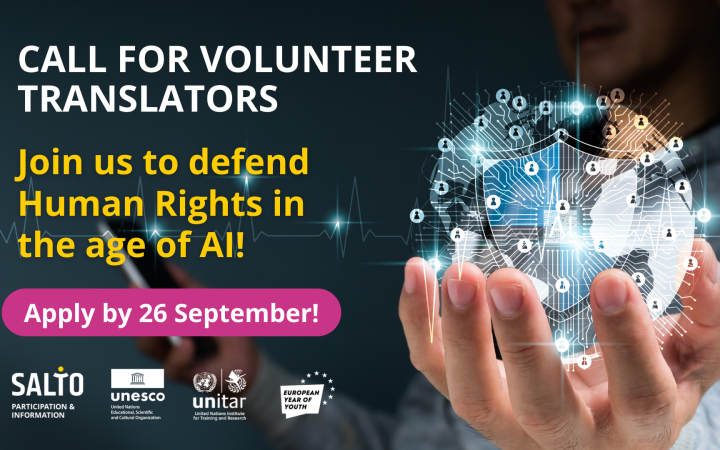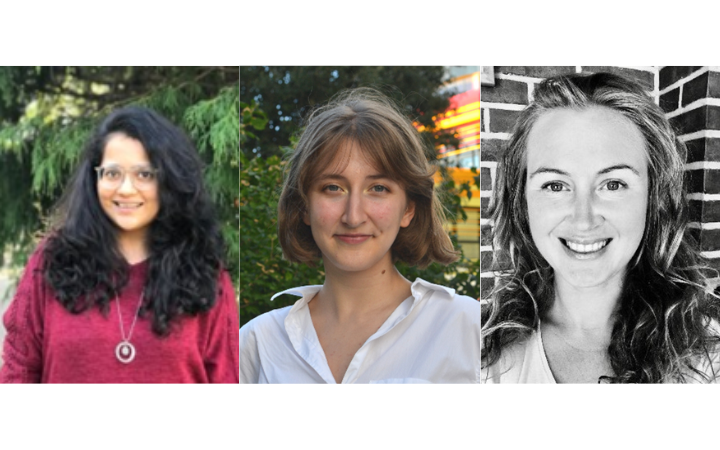October 2022, Hiroshima, Japan – Multilingualism is especially relevant for the United Nations and our partners as we work to bring course content to communities across the globe. The languages used determines which communities have access to knowledge. With that in mind, efforts to expand the languages available for online course content are under way, with the help of multilingual youth.
UNITAR and UNESCO together created the free online course “Defending Human Rights in the Age of Artificial Intelligence,” available through the mobile-first app EdApp. The course explores how artificial intelligence (AI) affects human rights and was released in five languages: English, French, Spanish, Chinese and Russian.
Now, with partner SALTO Participation & Information Resource Centre (SALTO-PI), UNITAR and UNESCO hope to bring the course to an even broader audience. A new project invites young people to translate the online course into their native language. Reviewers of the translations are also needed.
The translation project is open to speakers of all languages. It particularly celebrates the diversity of European languages on the occasion of the European Day of Languages on 26 September 2022 and promotes youth, acknowledging the this European Year of Youth 2022.
Applicants can opt to be the lead translator or a reviewer. As project leaders, translators send their translations to the team of reviewers for feedback and revise the translations accordingly. Through the project, young people will build professional skills, get to work with new people and develop an inspiring network.
The sponsoring organizations UNITAR, UNESCO and SALTO-PI are committed to ensuring that multilingualism flourishes and knowledge is made accessible to as many people as possible.
Saloni Lakhia (Strategic Planning, Monitoring & Reporting Expert, UNITAR Division for Prosperity) believes that multilingualism is critical for societies. “Being an Indian, I have the privilege of living in a country where 22 different languages are recognized by the Constitution as mother tongues, allowing for the seamless integration of a multilingual society,” she says. “Multilingualism creates a melting pot for ideas and innovation to freely mix and flow across diverse cultures, helping create a predominantly inclusive community, both global as well as local.”
Eléonore Louis (Communication and Information Sector Intern, UNESCO, and master of international affairs candidate at Hertie School, Berlin) notes that being an international student drove home how beneficial multilingualism was. “As an international student, I have witnessed how speaking more than two languages opened the door to meaningful friendships and opportunities,” she says. “It also broadened my understanding of life by forcing me to reflect on my own national-centric perspective. I am very hopeful that this project opens an accommodating space for youth curious about AI to connect and foster access to AI education in their home countries."
Kadri Maripuu (Coordinator, SALTO-PI) says: “Being fluent in more than one language brings benefits to (young) people – to participate in decision-making, express their views and learn about new opportunities.” For Kadri it is clear that “languages represent the culture and history of each community, which in turn allows a multilingual person to understand and explore other cultures and opinions with more openness.”
The team hopes that translating the content on AI will increase the number of people aware of ethical considerations when discussing a future with AI.



